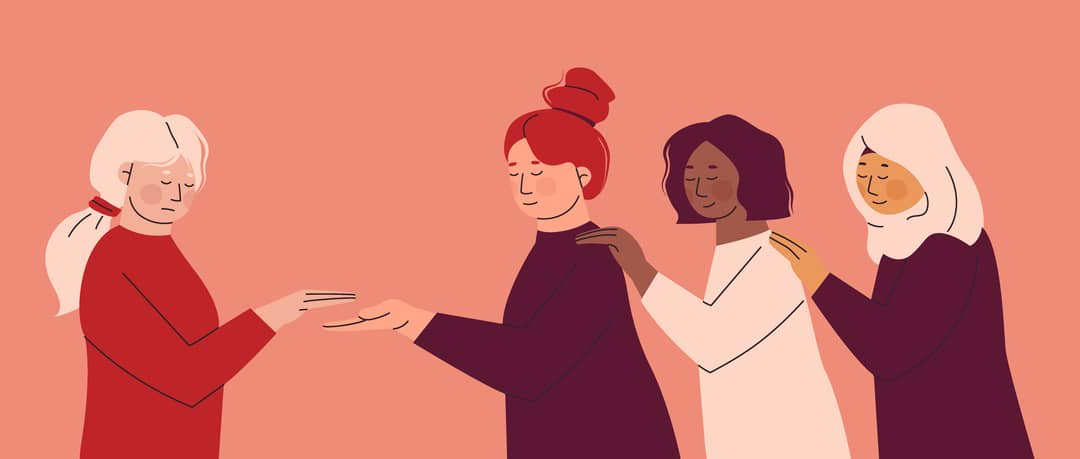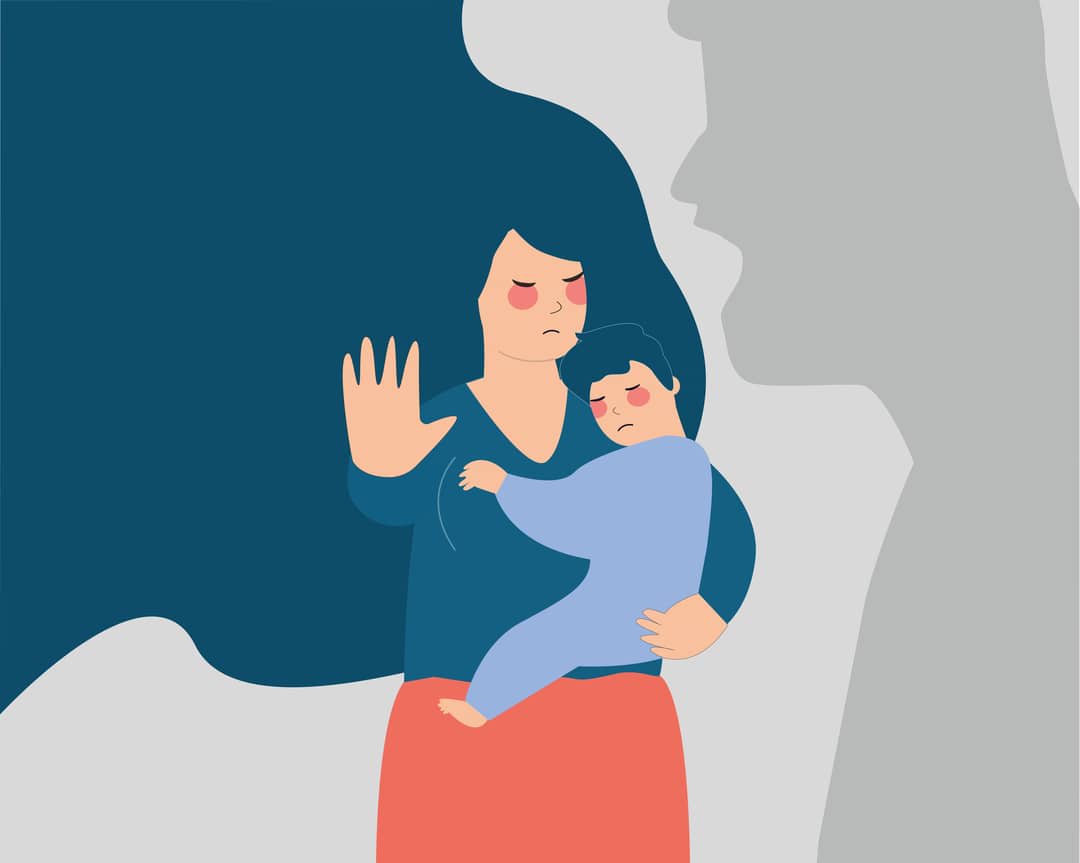
The federal government, in partnership with state and territory governments, is in the final stages of developing the next National Plan to End Violence against Women and Children. There’s as yet no date confirmed for the final release of this decade-long plan.
Our report, released on Friday, 1 April, by the federal government, presents the findings from a dedicated consultation with 80 victim-survivor advocates from across Australia. It highlights what those with lived experience are calling for in Australia’s policy commitment to end the national crisis of violence against women.
The report reveals a number of areas of focus for consideration, including:
- embedding lived experience into the governance of the next plan
- consulting with First Nations’ communities
- ensuring genuine bipartisan commitment and funding
- addressing gender inequality
- developing consistent responses to violence
- adopting meaningful measures of success and implementing effective community awareness campaigns.
Here we examine six of the key outcomes that victim-survivor advocates want to see embedded into the next national plan.
Embedding lived experience expertise in governance of the national plan
Throughout the consultation, there was unanimous support among victim-survivors for the next national plan to embed formal mechanisms for victim-survivor input in governance, including implementation and ongoing monitoring.
In the same way that consultation with the specialist sector and other key stakeholders is an assumed step in the reform process, advocates argued for engagement with victim-survivors to be built into processes of policy and practice change.

Advocates’ enthusiasm to see the next national plan embed engagement with victim-survivors was accompanied by reflections on the past lack of meaningful and comprehensive engagement with individuals with lived experience. This history deepened the significant need for the next national plan to embed a more formal model of victim-survivor engagement.
These views support the substantive public advocacy efforts that are led by members of the Independent Collective of Survivors (ICOS) and other advocates for lived experience expertise as foundational to the development and governance of the next national plan.
Delivering a genuine commitment to a fully funded plan
A key concern raised by victim-survivor advocates was that the next national plan wouldn't result in meaningful action or a marked reduction in the prevalence of all forms of family, domestic and sexual violence. These concerns are fuelled by the failure of previous national plans to measure and meet these same goals.
For advocates, a genuine commitment from the government would emphasise long-term responses that acknowledge the drivers of family, domestic and sexual violence.
While lump-sum payments are important in providing immediate support to victim-survivors, they are, according to victim-survivor advocates, a “Band-Aid” solution that cannot be relied on without longer-term commitments. Longer-term measures to support recovery, including economic stability, were viewed as critical.

Victim-survivor advocates said sustained funding was pivotal to the success of next national plan.
The family, domestic and sexual violence sector is critically underfunded. A lack of funding affects services’ ability to provide meaningful support, and often restricts them to immediate and/or crisis support only, rather than the ongoing support needed by victim-survivors – not only to build safe and secure lives, but to recover.
Ensuring women’s economic security
Engaging in family, domestic and sexual violence systems is expensive. Women who have experienced violence often began this process from an already disadvantaged financial position, due to broad-based gender economic inequality and the specific impacts of violence.
The nature of family, domestic and sexual violence means that women are often left with depleted financial resources. For example, economic and financial abuse commonly involves the perpetrator accruing debts in the victim-survivor’s name, controlling the family finances, and restricting the victim-survivor’s ability to secure and/or to maintain employment.

A significant number of victim-survivor advocates interviewed for this consultation had been or were currently living below the poverty line, unable to access basic resources such as food and safe housing.
Victim-survivor advocates described their interactions with systems that either provided little financial assistance or, most notably in the case of the legal system, further exacerbated financial disadvantage. They spoke at length about the need for economic security and financial independence, calling for a greater commitment from the government to provide financial assistance to people who have experienced family, domestic and sexual violence.
The inadequacy of police responses
Victim-survivors from across Australia repeatedly reflected on the inconsistency and inadequacy of police responses to family, domestic and sexual violence. This was a consistent theme running throughout the consultation.
Victim-survivors critiqued police for continued incident-based approaches to family, domestic and sexual violence – ignoring the ongoing patterns of coercive control that so often characterise women’s experiences of violence. These response shortcomings are often coupled with victim-blaming attitudes, and a lack of awareness and sensitivity to diverse and high-risk population groups.
The criminal justice system, including policing, was described by many victim-survivors consulted as a key point of the broader family violence system that lacks a trauma-informed approach. This absence of appropriate responses can result in secondary victimisation for victim-survivors.
The need for significant system reform to ensure a trauma-informed, culturally-safe, person-centred response was consistently identified throughout consultations.
Recognising diverse experiences and structural barriers
Advocates strongly supported that a diverse range of victim-survivors is involved at every stage of the next national plan – from design, to implementation, to review. Inclusivity is critical to achieving an intersectional approach. This must be intentional and embedded.

Targeted efforts must be made to ensure, for example, that women from migrant and refugee backgrounds and/or women with disability are a core part of work rather than an “add-on”.
This engagement is required to understand the very different experiences of institutions and systems that impact women. The experience of temporary visa holders is one such example, where the migration system must better understand the flow-on impacts of women’s experiences of, and access to, welfare, legal, and other support.
Embedding clearly articulated measures of success
Victim-survivors emphasised the need for the next national plan to include ongoing monitoring of the implementation of recommendations, measurement of progress, and evaluation of the effectiveness of reforms. Ongoing evaluation was seen as beneficial for two reasons:
- It will benefit the government by allowing it to allocate funding appropriately and effectively
- It’s vital to ensuring that system responses and implemented reforms don’t have unintended consequences for the very people they’re designed to protect.
In addition, across the consultation, victim-survivor advocates repeatedly emphasised that key to any measurement of success would be an understanding of victim-survivor satisfaction with, and security in, different points of the system.
While acknowledging the importance of “numbers” to the measurement of impact, advocates were clear that true success will be found when the numbers are able to measure the actions that make a difference to people’s lives.
What does this all mean for the next national plan?
Victim-survivors alone cannot carry the responsibility of delivering on the next national plan, but what’s clear from this consultation is the appetite to have opportunities to be directly involved in the short and long term of all aspects of the plan’s delivery.
We know that across our community, many victim-survivors never share their experience, and don’t wish to, or are not well-placed to, take on an advocacy role.
We acknowledge this, and note here the importance of paying tribute to all victim-survivors, and to aim to proactively engage women from many sectors of the community to be at the forefront of driving change. The work that happens through the next national plan should take heed of this.





